Survive before thrive… About why the financial crisis is for the good of Russian football
It is well-known that professional sport in a country is an illustrative indicator of the state of the economy. Nowadays Russia suffers from a financial storm against of a background of fall in oil prices and, consequently, high volatility of the national currency. And sport began to react. The most expensive sport – football – was the first in it. Realnoe Vremya tells about the life of top 10 Russian clubs in the new conditions and what else money gave to football except the 'passport owners'.
Economy of transfer market
Economical tendency especially seen in the actions of Russian clubs in the transfer market. Even unsinkable in financial terms Zenit refused multimillion transfers like the purchases of Halk or Witsel. Yes, having signed good contracts, Kokorin and Zhirkov came to the club, but Zenit economized on transfer expenses. Other clubs of the Russian Football Premier League practically don't spend money. In general, we are speaking about loan spells, free agents or transfers whose cost is €2-3 million per a player. €1m is an average sum. First of all, we will observe the work of top 10 clubs of the current championship of Russia during winter transfer window. It should be specified that there is a great deal of rumours in the media that we won't take into account.
- CSKA (Moscow)
The leader of the championship almost has never spent an outrageous amount of money. As a rule, the management of the club headed by Giner looks for talented players around the world and brings them up intermediate European level players. The Militiarians (Armeitsy) behave in a modest way. CSKA did not spend a penny in this transfer window: Tkachev, a free agent from Kuban, and Carlos Strandberg, who returned from loan spell. The latter joined the Horses (Koni) to replace Seydou Doumbia who returned to Roma.
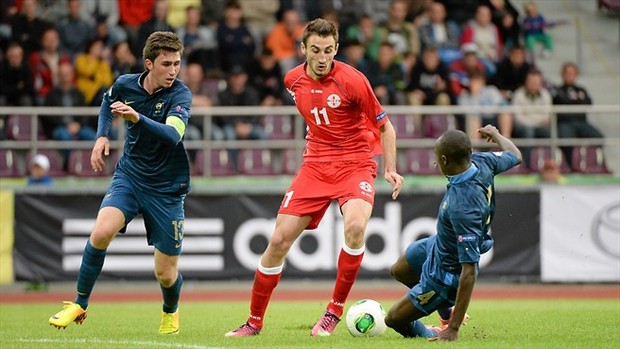
- Rostov (Rostov-on-Don)
Kurban Berdyev's team became a sensation of the season regardless of the results in the spring part of the championship. In fact, Rostov occupied a free niche of intermediate team when Rubin chose the path of 'recovery and rejuvenation'. Rostov takes the second place in the championship, and there is only 3-point margin between this club and the winner. There are many written texts about the southerners' financial problems. But it seems that Berdyev has enough authority to make the administration of the club splash out on strengthening the squad.
So, Nika Kacharava, a forward of Spartak Tskhinvali (Georgia), was purchased for €300,000. The Turkmenistani specialist had worked with him in Kazan. What is more, Kudryashov, the wing back of Terek, was purchased for €2m.
- Lokomotiv (Moscow)
The president of the club Olga Smorodskaya and coaching staff's searches suddenly yielded a fruit. Igor Cherevchenko, a former Lokomotiv player, turned out a good coach, so before the winter break, the club took the third place. It is necessary to remind that the baby of Russian Railways did not grudge spending money on transfers in the dark days too. And they should strengthen the team in this successful season and cement its position among three best clubs. But it was nothing of this sort…
The crisis probably affected the monopolist of Russian Railways. At present, nobody was purchased by Lokomotiv. Its goalkeeper Anton Kochenkov and 'unsinkable' Dmitry Sychev returned from loan spell. However, Dmitry's contract with Moscow expired and he entered the free-agent market. According to the player's agent, Sychev doesn't have any variants to continue his career and he can call it quits. What is more, recently it became known that Everton purchased Oumar Niasse for astronomical £13.5m on the last day of the transfer window. Loko lost its striker...
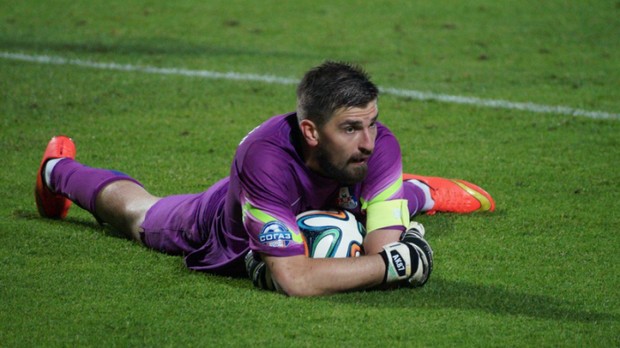
- Spartak (Moscow)
12 years, 7 months and 17 days. The flagman of Russian football in old days is not able to win a trophy in Russia or Europe during this period. What is more, the team has money. Leonid Fedun, the owner of the club, did not economize on transfers. The only thing is that there are no results. Recently Fedun stated that he would not sell the club until it won the championship of Russia. It sounds a bit threatening, isn't it?
Leonid Fedun is the vice-president of Lukoil PJSC. It is a petroleum company and the main sponsor of the Red-Whites. Falling oil prices probably make Fedun tighten his belt together with his football ambitions. Spartak has had no purchases. Only the club's goalkeeper Sergey Pesyakov returned from loan spell. Moreover, the Red-Whites reduce the payslip. The club freed Roman Shirokov as free agent and sold Araz Ozbilis to Beşiktaş (Turkey), and Yura Movsisyan was sent on loan.
- Krasnodar (Krasnodar)
Sergey Galitsky's Krasnodar FC and Magnit shops don't surprise the football community with their intelligent management. The club gradually strengthens its roster spending little money. No one is surprised with the fact that Krasnodar has not spent a penny in this winter window. The club has 'caught' Vyacheslav Podberyozkin, Kouassi Eboue, a 18-year-old player from from Cote d'Ivoire in the free-agent market, and the goalkeeper Stanislav Kuassi was loaned from Braga (Portugal).
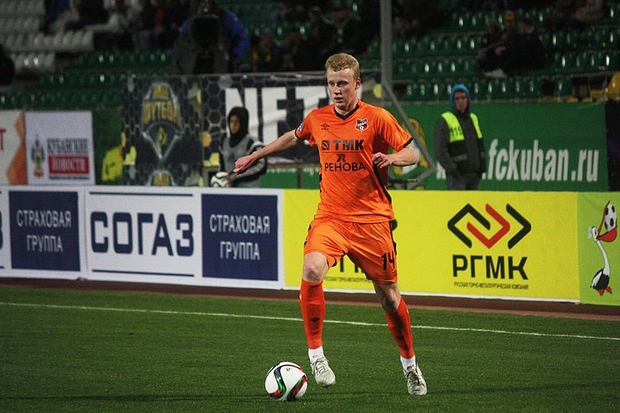
- Zenit (St. Petersburg)
The reigning champion of Russia is not stingy with the renewal of the squad. But today even omnipotent Gazprom's wards have to budget, according to Petersburg standards, of course. Zenit also collects free agents and did not drudge on novices' contracts. So, Aleksander Kokorin, 'the promise of Russian football', will earn €3m in Zenit. And this 'promise' is 24 years and he had played only in Dinamo.
Apart from Kokorin, Dinamo's Yuri Zhirkov joined the team on loan. The team also signed a contract with the midfielder Jose Mauricio whose contract with Terek expired. Ramil Sheydaev was returned from loan; the player did not play even at Rubin Kazan. So, there is nothing special, especially for Zenit. - Terek (Grozny)
The club of Chechnya is at an advantage in this winter transfer window. The team has sold Kudryashov to Rostov and has bought nobody. Terek has had an addition in the person of two free agents: Luke Wilkshire and Zaurbek Pliev. What is more, Rakhimov's wards had a good payslip because the club did not extend the contract with Jose Mauricio, so he joined Zenit as a free agent. Transfer modesty of the club doesn't impede it to take the seventh position; the club lacks 2 points to be among four teams that play in European championships.
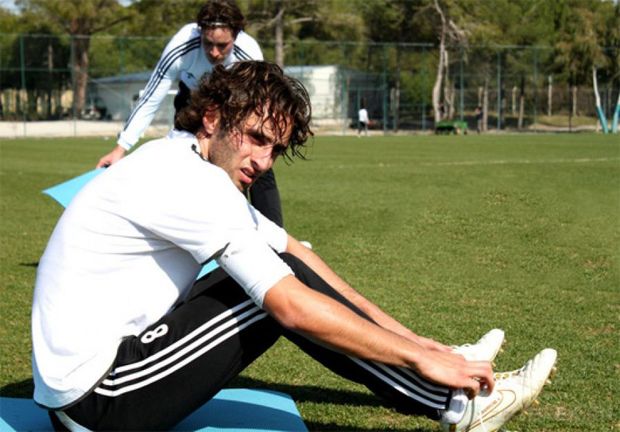
- Ural (Yekaterinburg)
Only one season ago Ural was supposed to be a perennial fighter for survival whose route is National Football League – Russian Football Premier League – National Football League. However, the administration and coaching staff of the team managed to break the moulds and to become a strong intermediate player of the championship with scarce financial resources.
The current transfer window is not easy for Ural: it does not have money to have a new squad. Consequently, only one half back of the National Football League – from Fakel (Voronezh). There are no rumours, what is a unique situation for Russian football.
In this winter break, the club is losing its players. Strandberg, who was loaned from CSKA, returned to his club. He is necessary there to cover the problematic position of Doumbia, who left the team. What is more, Vyacheslav Podberyozkin left Ural. - Rubin (Kazan)
After a disastrous start in the championship, the club of Kazan feels better. Aside from Rinat Bilyaletdinov who was 'sacrificed', Sorokin and Gromov, the administration, were asked to leave the club. Metshin, Fakhriev and Chaly remedied the situation in the ranking and began to work in the transfer market.
Nowadays Rubin seems to be the most active Russian club in the market. Three new players for problematic positions like midfielder, central back and inside left appeared in Kazan. Although Caktas, Tkachuk and Bergströms don't look like an obvious strengthening, they have a potential. And Rubin spent just €2,1m.
It is necessary to understand that it is not enough to have only three new players.
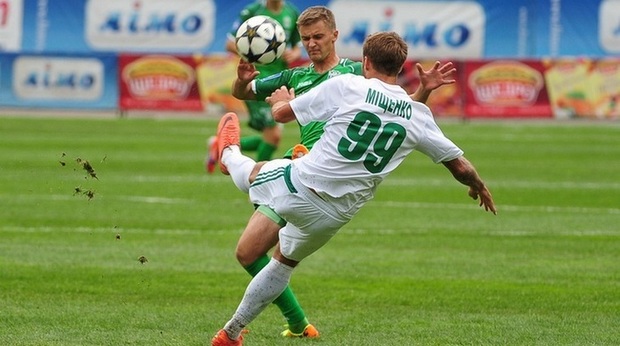
- Amkar (Perm)
Kazan's rival is calm. The team is not threatened with relegation zone. And it is not active in the transfer market. Amkar has purchased only two free agents: half back Vladislav Sirotov and forward Oleg Mischenko.
Football without money. Is it good or bad?
As we see, top 10 clubs of Russian football are tight-fisted in the transfer market, especially during the next 4-5 years. Now we would like to state that many fans think that reduction of money flows to our football is a catastrophe. But it is not true. We offer you to compare the results of the Russian clubs and the national team of Russia in the 90s and from 2010 to 2014 (as a period of financial well-being).
So, in the 90s, the teams consisted of mainly Russian football players and footballers from CIS countries of the post-Soviet space. No one could be compared with Spartak. Alania, Rotor, Lokomotiv and CSKA were the rivals of the White-Reds at that times. We won't compare the attractiveness of the domestic championship of that period with today's one. Not every one likes it, so to say. Let's dig deeper.
Hopeless 90s
In the 90s, only Spartak took part in Champions League twice. In 1992, the club reached the semi-final of UEFA Cup Winners Cup. In two years, it played in the 1/8 finals of Champions League. In 1996, Romantsev's wards easily went through the group stage of the main competition of European football and stopped in the quarterfinal. After two-year rest, they almost played in the final of UEFA Cup but gave way to Inter where the phenomenon Ronaldo was playing. The 1998 was even the best year in the Russian history of UEFA Cup. In the same season, Lokomotiv reached the semi-final of UEFA Cup Winners Cup, but it was defeated by Stuttgart. Literally in the next season, they repeated the result. This time, they could not beat Lazio from Roma.
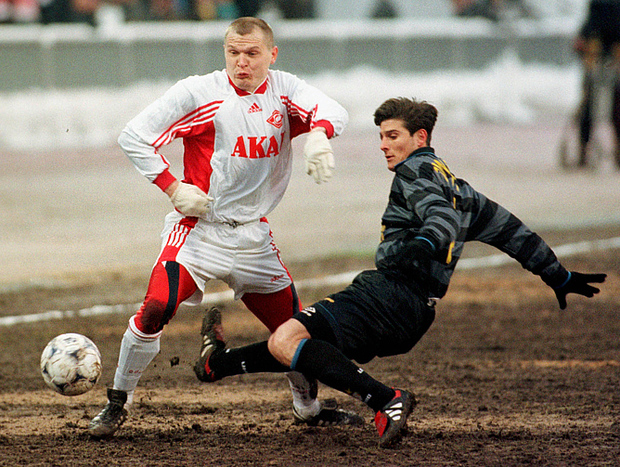
It should be emphasized that the financial spending on maintenance of Russian football cannot be compared with monetary 'black hole' our football turned into after 2010.
In 2010-2011, Rubin and Spartak stopped in the group stage of Champions League. To tell the truth, in this season, the Moscow club managed to reach the quarterfinal of Europa League. Meanwhile, Zenit did not cope with Auxerre in the qualification round of Champions League.
If the result does not change, should it be invested?
The next season was the best one for the Russian clubs in Europe in that period. Zenit went through the group stage of Champions League but was defeated by Benfica in the first round in spring. The budget and squad of the Portuguese team was better. Lokomotiv also succeeded in the group stage. In elimination round, Real Madrid won on aggregate, so CSKA suffered more.
In 2012-2013, Spartak and Zenit did not succeed in group stage. The best result in that year belongs to Rubin. Berdyev's players reached the quarterfinal of Europa League, and Chelsea, the future winner, won that match. Next year, Zenit again reached the play-off round but Borussia was stronger.
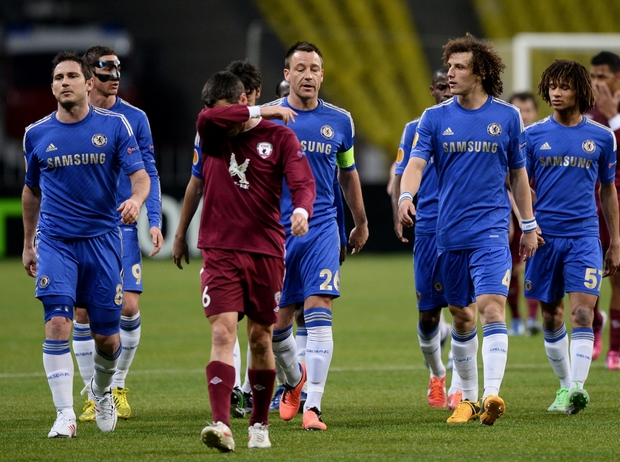
Yes, our comparative analysis does not include the success of the national team in WC in 2008, victories of CSKA and Zenit in UEFA Cup and Europa League. It should be understood these good results were achieved by the players whose pockets were empty. Arshavin, Pavlyuchenko and Zhirkov were looking for a place in the sun without depending on the limit on foreign players. High salaries appeared in Russian football at the twilight years of their career and when the clubs learnt to count money.
What did money give besides the 'passport owners'?
Summing up all above-mentioned facts, we can say that it is obvious that these 'crazy' financial possibilities, which, in fact, poisoned football did not have a sports effect. Russian football's result in European championships can be compared with the 90s. So, we observe that big money did not lead to a good result but to a slow degradation, which was caused by unmotivated and satisfied life of sportsmen based on the limit on foreign players and a joke about 'passport owners'. Is it a joke? Even in the conditions of the financial crisis, Kokorin will earn €3m per year in Zenit. We are looking forward to further spending from Russian football.